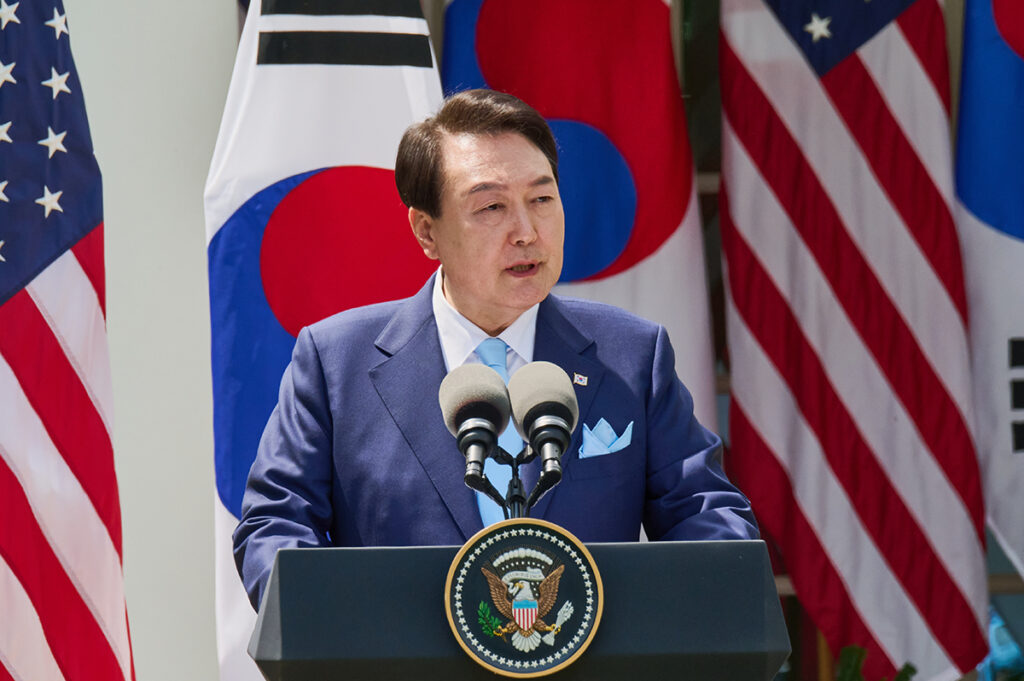South Korea’s political crisis reached new heights on Friday as impeached President Yoon Suk Yeol narrowly evaded arrest after a dramatic standoff at his official residence. The prolonged confrontation has thrown the nation into deeper uncertainty, fueled by Yoon’s contentious martial law decree and subsequent impeachment.
Tense Hours at the Presidential Residence
Investigators armed with a court-issued detention warrant attempted to detain Yoon Suk Yeol on Friday, but their efforts were thwarted by the presidential security service. The standoff, lasting nearly six hours, saw officials citing “security concerns” to justify blocking entry. The Anti-Corruption and Civil Rights Commission later issued a statement condemning Yoon’s “failure to comply with lawful procedures.”
Yoon, impeached last month following his controversial martial law declaration, has remained inside the residence since December 12, avoiding investigators. His refusal to cooperate has exacerbated the country’s political chaos, with no resolution in sight.
The Martial Law Controversy That Sparked a Crisis
The impeachment stems from Yoon’s dramatic declaration of martial law on December 3, a move he justified as necessary to bypass legislative gridlock caused by an opposition-controlled parliament. His decree involved deploying troops to surround the National Assembly—a decision swiftly overturned by lawmakers in a unanimous vote. Just 11 days later, Yoon was impeached on charges of rebellion.
Since then, anti-corruption officials and prosecutors have launched investigations into Yoon’s actions, culminating in the current detention warrant. However, enforcing the warrant has been fraught with difficulty due to legal protections over military-linked properties like the presidential residence.
Supporters Brave the Cold in Solidarity
Outside the residence, thousands of Yoon’s loyal supporters rallied in subzero temperatures, brandishing South Korean and American flags. Despite the freezing conditions, they formed a human barrier, chanting slogans and expressing their unwavering support for the embattled leader.
Meanwhile, inside the presidential grounds, chaos reigned. Reports of clashes between investigators and security personnel highlighted the fraught atmosphere. “It remains unclear whether investigators successfully gained access to Yoon’s residence,” noted YTN television, as tensions escalated throughout the day.
The Legal Fight and Constitutional Court’s Role
Yoon’s fate now hinges on the Constitutional Court, which must rule on whether to uphold his impeachment. A two-thirds majority—six out of nine justices—is required to remove him from office permanently. In the interim, Yoon’s presidential powers remain suspended, adding to the nation’s uncertainty.
Yoon’s legal team has also mounted a defense, challenging the validity of the detention warrant. They argue that enforcing the warrant within the presidential residence violates laws safeguarding military-related locations.
Authorities face mounting pressure as the one-week validity of the warrant ticks away. Should they succeed in detaining Yoon, a court will determine within 48 hours whether to formally arrest him or release him.
South Korea at a Crossroads
As South Korea awaits the Constitutional Court’s ruling, the nation finds itself mired in political upheaval. The standoff at Yoon’s residence underscores the high stakes of the unfolding saga. Whether Yoon is ultimately removed or reinstated, the outcome will have profound implications for the country’s future.
For now, the lingering tension reflects a nation grappling with deep political divisions and an uncertain path forward.


